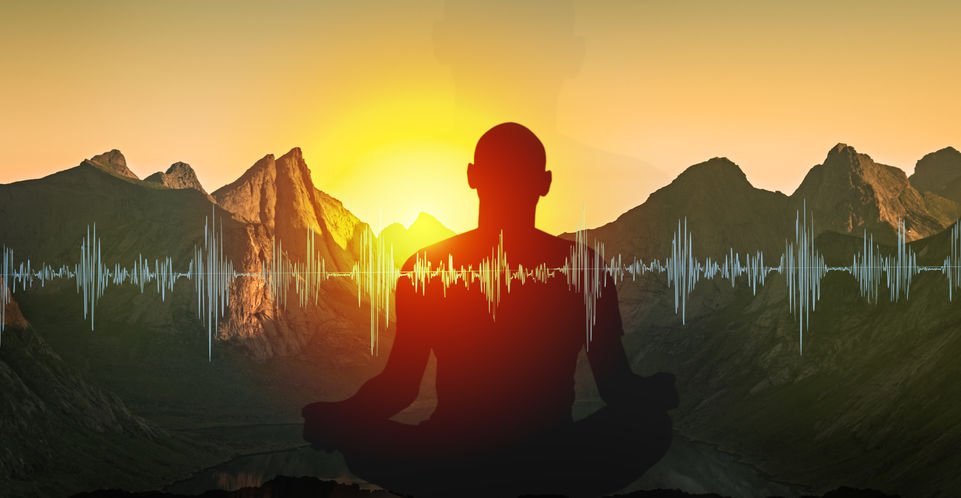"Music is the shorthand of emotion." —Leo Tolstoy
Music has been with us for centuries. We are all very aware of the subjective benefits of listening to music but until fairly recently, we haven’t known the neuroscientific benefits of music and how it can help us emotionally.
“Music, uniquely among the arts, is both completely abstract and profoundly emotional. It has no power to represent anything particular or external, but it has a unique power to express inner states or feelings. Music can pierce the heart directly; it needs no mediation.”
― Oliver Sacks, Musicophilia: Tales of Music and the Brain
The Psychology
With more advanced technology such as brain imaging techniques at our disposal, more and more research is being done to search for factual, evidence-based findings. Thanks to this research exploring the psychology of music, we are now able to understand why music is so beneficial for our mental and physical health.
The main psychological issues people tend to struggle with in our current psychosocial climate are how to manage stress, anxiety and depression. Everyone seems to be searching for a way to help themselves, usually hoping for a ‘quick fix’.
We know that there is no one technique that will help everyone. We’re also complex human beings so thinking that one thing is going to be able to take our pain away isn’t realistic. It’s therefore so important to look at a range of ways we can help ourselves. Music being one of the most powerful yet overlooked ways of helping enhance our mental and physical wellbeing.
“The human species is compelled to theorize and strive to make sense of both life and the universe…I am sure that one of the reasons why music affects us deeply is its power to structure our auditory experience and thus to make sense out of it.”
– Anthony Storr, Music and the mind.

Changing Your Emotional and Physical States
Listen to one of your favourite songs. Notice how it makes you feel. Music has the ability to change our physical and emotional states. If you need more proof, just think of a time when you listened to a beautiful song and got goosebumps.
Music can make you feel introspective, reminisce of the past when that song was the soundtrack to your life. It can also induce movement and make you feel really excited. Music has a powerful yet diverse impact on both our body and our mind.
In my experience, humans tend to like exact answers. So you might be wondering what song is best to listen to if you want to regulate your emotions. It’s interesting as a song that can invoke a certain emotion in one person, may not impact another in that way at all. Music is very unique to the listener, there’s not one single type of reaction to a specific song. That’s what makes music so fascinating. Different kinds of music can trigger very different responses. Music activates many parts of our brain, including the hippocampus which processes memories. That’s why, when listening to a familiar song, you can get transported back to that past chapter of your life.
Having said that, depending on the melody, timbre, tempo, rhythm and lyrical content, music does have a universal ability to evoke general emotional responses in its listeners. People tend to have a similar type of reaction when hearing certain kinds of music. For example, fast paced, staccato-type sounds usually invoke energy and you get an urge to move. Slower, melancholic sounds induce a more somber emotional state.
“Music is the medicine of the mind” John Logan
There have been many debates regarding whether listening to music is a form of escape or if it’s a way to help us regulate our emotions. According to Anthony Storr who wrote, Music and the Mind,
“…there is no doubt that music provides one path of temporary withdrawal from the hurly-burly of the external world…when we take part in music, we are temporarily protected from the input of other external stimuli…a temporary retreat which promotes a re-ordering process within the mind, and thus aids our adaptation to the external world rather than providing an escape from it.”
Let’s delve deeper into ways music can help regulate our emotional state.
Emotional Contagion
Music has the ability to induce an empathic response, also known as emotional contagion. This is when perceiving an emotion in a song can sometimes induce that same emotion in the listener. This can help you feel emotions that you otherwise wouldn’t want to feel, in a contained, safe space. Melancholic music can also help you express your own sadness in a contained way where you don’t feel so alone in it. When we listen to a singer singing emotionally, you can relate to what they’re singing about. You know that the only way they can sing that way is because they have felt that emotion too.
As Tolstoy put it, music is a language of emotion. People who struggle to express their feelings in words can sometimes feel safer expressing their emotions through music.
Music and Anticipation
Music is powerful because there is an element of anticipation. This activates our reward system which makes us feel good when listening. This is important as it means, if we’ve listened to a song over and over, there will be less anticipation which means we won’t enjoy the song as much as we initially did. That’s why we tend to search for new music, to create that element of surprise again.
“Music is organized sound, but the organization has to involve some element of the unexpected or it is emotionally flat and robotic.” Daniel J Levitin, This Is Your Brain on Music.

Music and Meditation
Many people have heard about the benefits of meditation and mindfulness in managing stress and anxiety. I’m sure you’ll be pleased to hear that music is another form of meditation. A study was done comparing meditation with listening to a range of relaxing songs. The results showed that both meditation and music induce a relaxed response in people.
Playing an instrument as well as going to live gigs is a way to feel part of a community.
“While music alone can unlock people with parkinsons, and movement or exercise of any kind is also beneficial, an ideal combination of music and movement is provided by dance (and dancing with a partner, or in a social setting, brings to bear other therapeutic dimensions).”
― Oliver Sacks, Musicophilia: Tales of Music and the Brain
Help Calm the Nervous System
If you’d like to use music as a tool to help induce relaxation or sleep, use calm, soothing music as this mimics a sleep state by slowing your breathing and heart rate. This then lowers your blood pressure, eases muscle tension and calms the nervous system. This will also help ease stress and anxiety.
Binaural beats have been used extensively with people who suffer insomnia. Many people reporting positive benefits of listening to it before they go to sleep. One song in particular was produced by neuroscientists and musicians in order to help induce a very relaxed state. The song reportedly induces such a relaxed state that that they caution you not to listen to it while driving.
This particular song is called, ‘Weightless’ by Marconi.
Increase Energy and Stamina
If you’re needing more energy, upbeat music can stimulate the mind and body to feel invigorated. This kind of music can elevate your heart rate by increasing adrenalin. It activates motor areas in your brain that are responsible for physical co-ordination as well as promote physical stamina. It can also induce attention, creativity and mental alertness.
Because music is such an intricately woven part of our human existence, more research is evolving into how we can use it to benefit us. A recent article I read even goes as far as predicting that soon General Practitioners will be prescribing exercise and music before medication when managing anxiety and depression.
The Author - Sharon Draper

Sharon Draper is a Psychologist who works with people in a holistic way. She uses techniques suited to each unique client. These include evidence-based approaches such as Psychodynamic therapy, Neuropsychology, Mindfulness, Cognitive-Behavioural Therapy, Gestalt Play therapy, Narrative therapy, and Family systems theory. She also enjoys using various art therapies.



